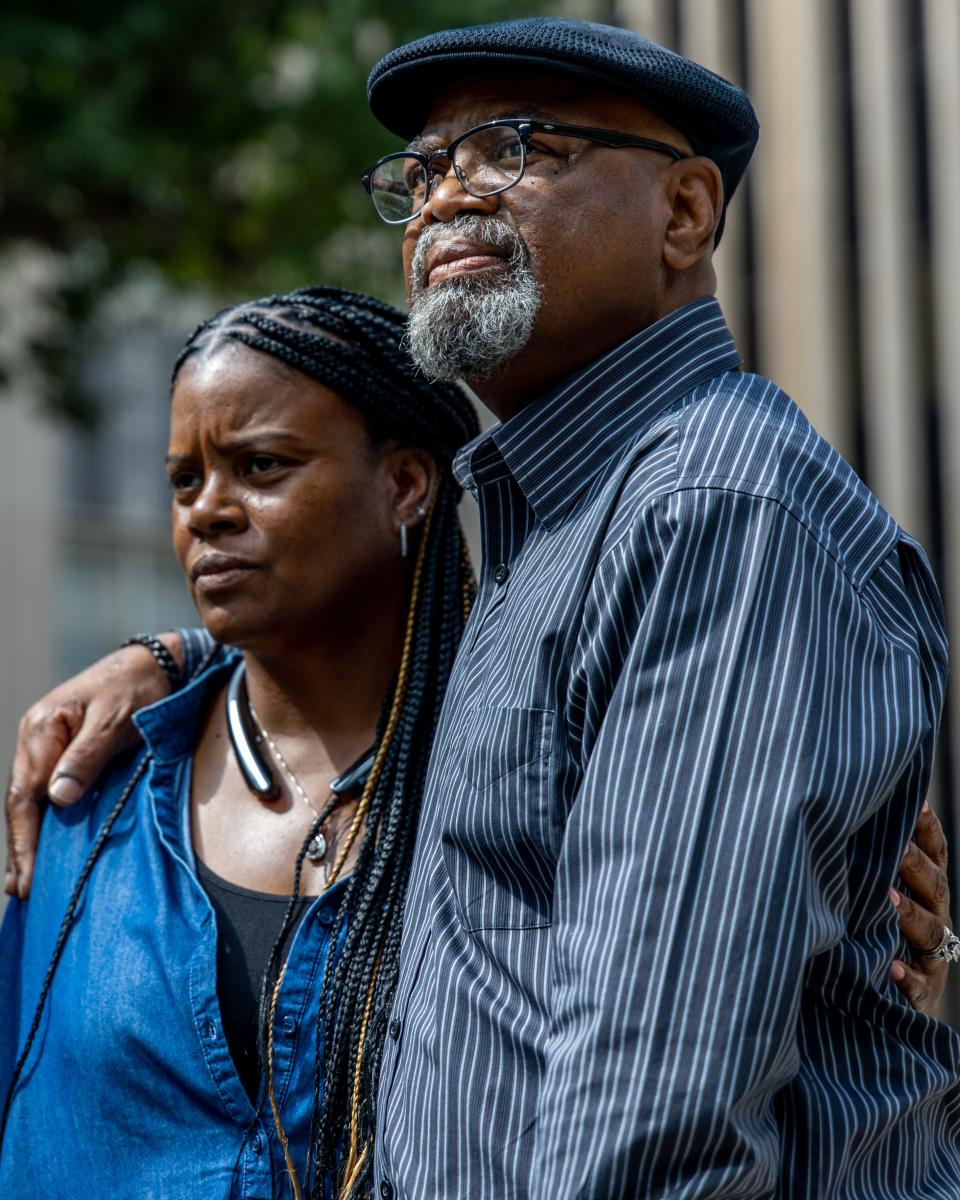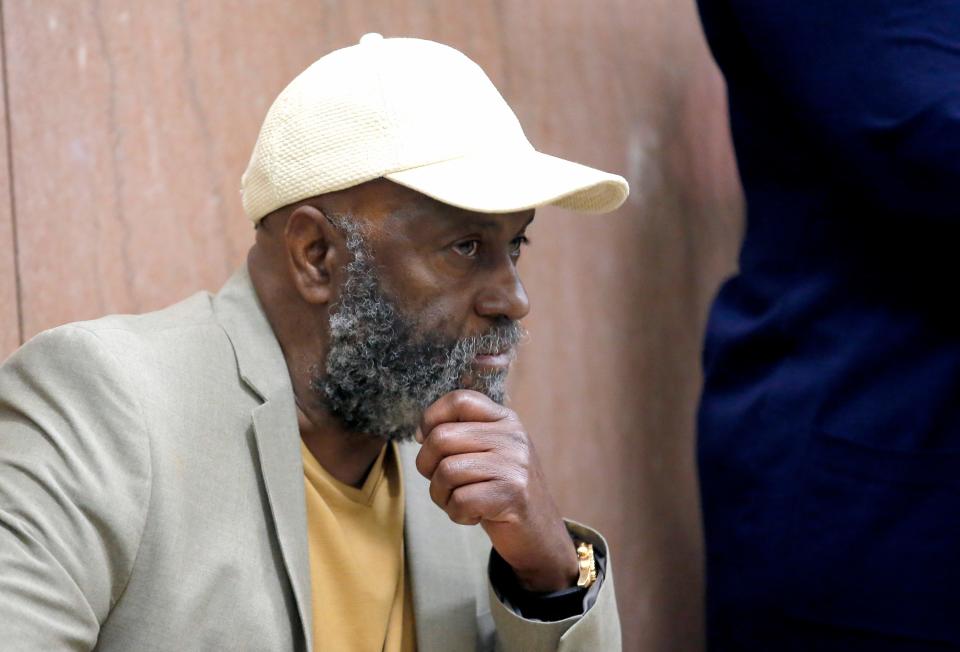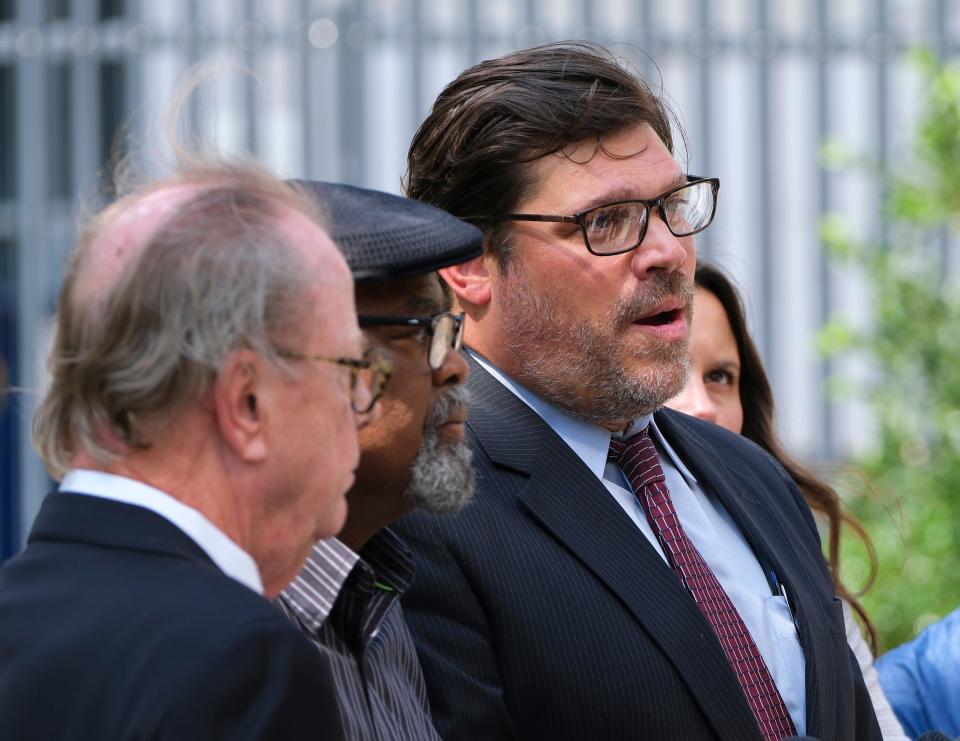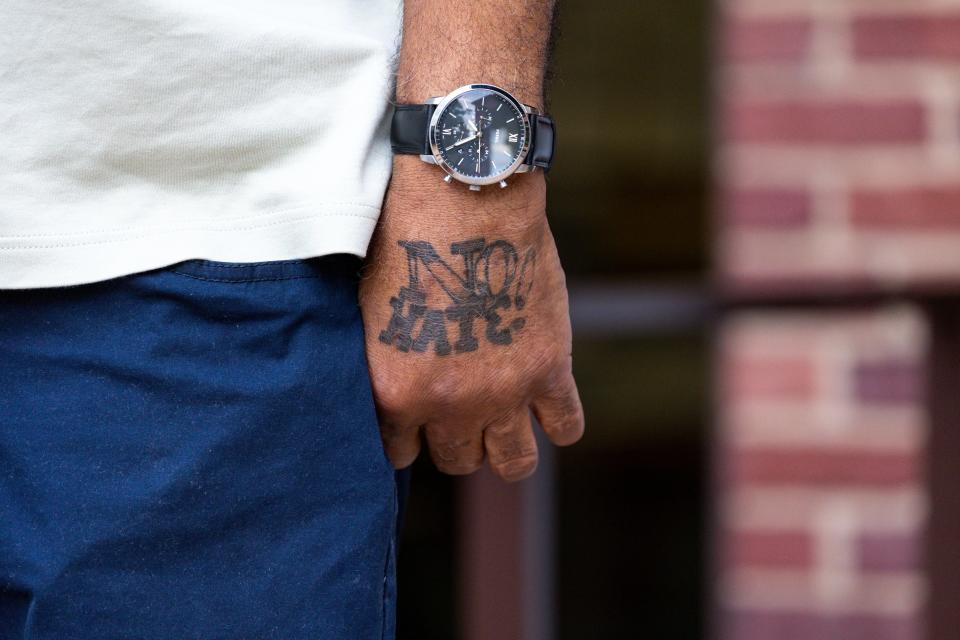With Glynn Simmons free, is Carolyn Sue Rogers' 1974 murder now a cold case?
With both men previously convicted of her murder now released from prison, is the 1974 death of Edmond liquor store clerk Carolyn Sue Rogers now considered a cold case homicide?
State prosecutors and law enforcement officials are inclined to disagree with supporters of the two former inmates, as expected, but the reasons why are different.
Do officials consider Rogers' case 'unresolved'? Not exactly.
Definitions vary depending on which agency you ask, but a cold case is generally understood to be a crime that has not been fully resolved and is not the subject of an active investigation.
At first glance, the murder of Carolyn Rogers might sound like it fits the category, given that one of the convictions in her case has been overturned and serious questions still remain about what actually happened the night of her death.
But the central issue regarding a cold case status is that neither of the two men convicted of Rogers' murder have actually been found innocent.

On Dec. 30, 1974, witnesses said Rogers was shot and killed while two men were robbing an Edmond liquor store. In 1975, Glynn Simmons and Don Roberts were convicted of the murder and sentenced to death row, but were later given life sentences.
In 2008, Roberts was released on parole, and earlier this year, Simmons' life sentence was vacated and his case dismissed.
More: Man freed after 48 years in Oklahoma prison seeks reform, compensation
But both men maintain they are innocent of the murder, with Simmons saying he was in Louisiana and Roberts saying he was in Texas at the time of the crime.
A spokeswoman for Oklahoma County District Attorney Vicki Behenna noted that the dismissal of the case against Simmons does not equal exoneration, since the DA only said prosecutors could not prove the case against Simmons "beyond a reasonable doubt" and an eyewitness would not recant her testimony. And though Roberts was paroled 15 years ago, his conviction still stands, the DA's office said.
If one conviction was overturned, could the other man seek innocence?

Criminologist Amanda Newland-Davis, co-founder of the nonprofit Oklahoma Cold Cases Inc., said her organization would consider Rogers' murder a cold case. If Simmons and Roberts were convicted together, and then one was freed after evidence could no longer convict him, she said, then the other man could make the same case.
"It's the same evidence, or lack thereof, then it has to be true for him as well. And we would consider that a cold case," Newland-Davis said.
But various obstacles remain before it can be officially reclassified as a cold case, and even if it is, police would need to investigate if anyone else could be accountable for Rogers' death.
“Police will probably tell you: ‘(Roberts and Simmons) are our guys, we got the bad guys, this is not a cold case, this is a closed case,’" she said. "That happens more often than not.”
Emily Ward, a spokeswoman with Edmond police, clarified that the department uses the term “inactive,” rather than “cold case,” when referring to unsolved crimes with no further leads. But in Rogers' murder case, she said Roberts’ conviction still stands and that the case is “closed by adult arrest.”
Cold cases don't have active leads, but lawyers say there are unexplored angles

Simmons' legal team, including attorneys Joe Norwood and John Coyle, believe Rogers' murder might qualify as a cold case. Coyle said he believes it’s been one ever since the two men were wrongfully imprisoned, while Norwood questioned if authorities could move forward with the Rogers' case after so much time has passed.
But for cold cases, law enforcement agencies are usually still hopeful for new information, either from new witness testimony, new evidence or new activities from a possible suspect. In the case of the 1974 liquor store murder, however, Norwood says such expectations might be too high.
"It's so late, almost 50 years after the fact," Norwood said. "Evidence has gone stale. Witnesses are dead or not cooperative. It'd just be almost impossible to get it done."
A cold case also means there are no more investigative leads to follow. But Norwood and Coyle claim a review of records showed an eyewitness identified four other individuals in several different lineup procedures during the initial investigation.
More: Lawmakers to study possible moratorium on death penalty
They also allege that Leonard and Delbert Patterson, who had been arrested in February 1975 in connection with two other killings, could have committed Rogers' murder as well.
Coyle believes the Patterson brothers should at least be considered persons of interest by police, but it is unknown if there will be any attempt to pursue another investigation. Norwood is not optimistic. To him, the people actually involved in the fatal robbery that took Rogers' life might never be held accountable.
"There's so many levels at how unjust these wrongful convictions are, because it devastates the victims and their families, and it devastates the people that were wrongfully convicted and their families," Norwood said. "That's why it's so important to get it right and not jump to conclusions."

This article originally appeared on Oklahoman: Glynn Simmons' murder conviction was vacated. Is it now a cold case?

